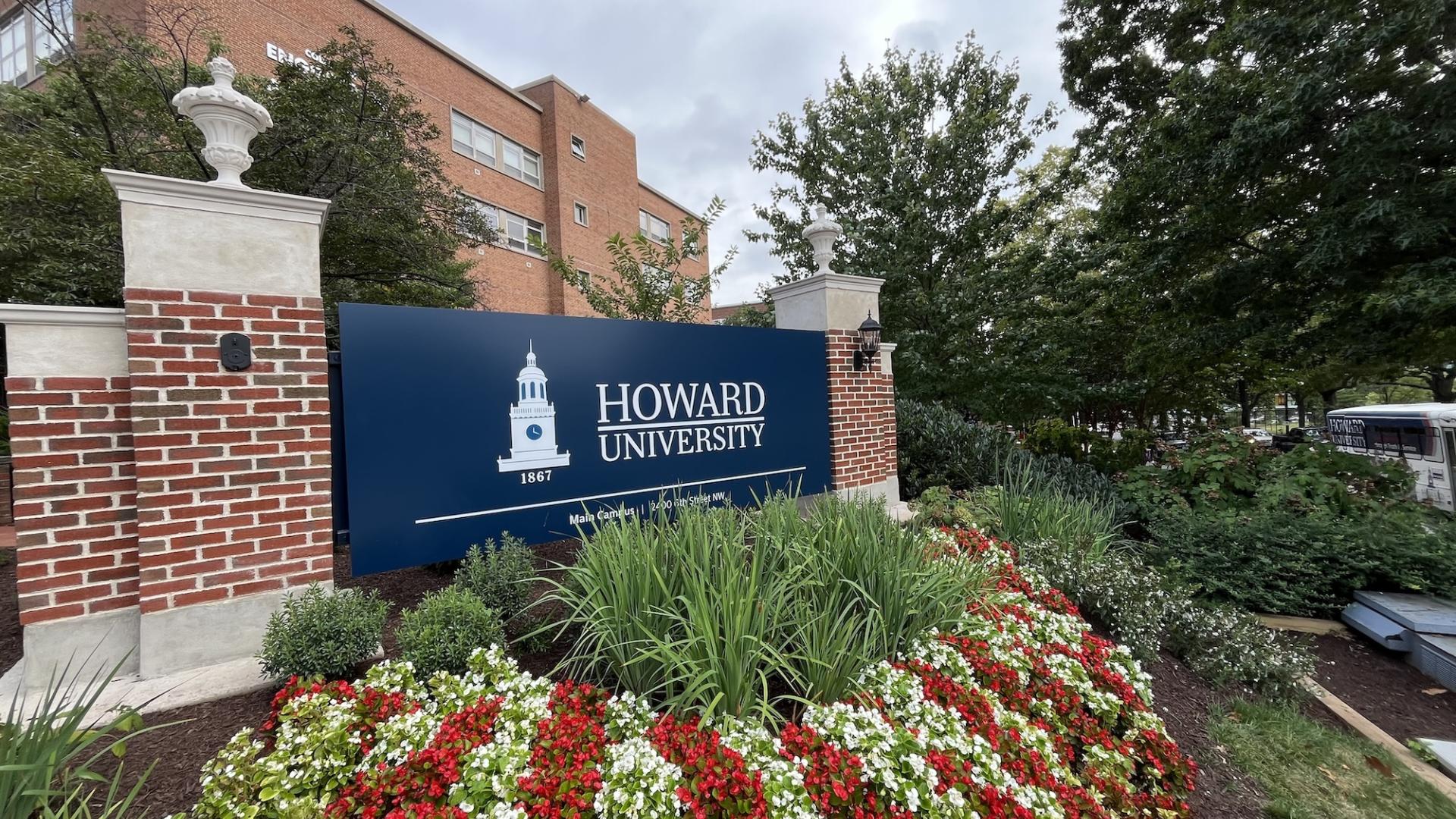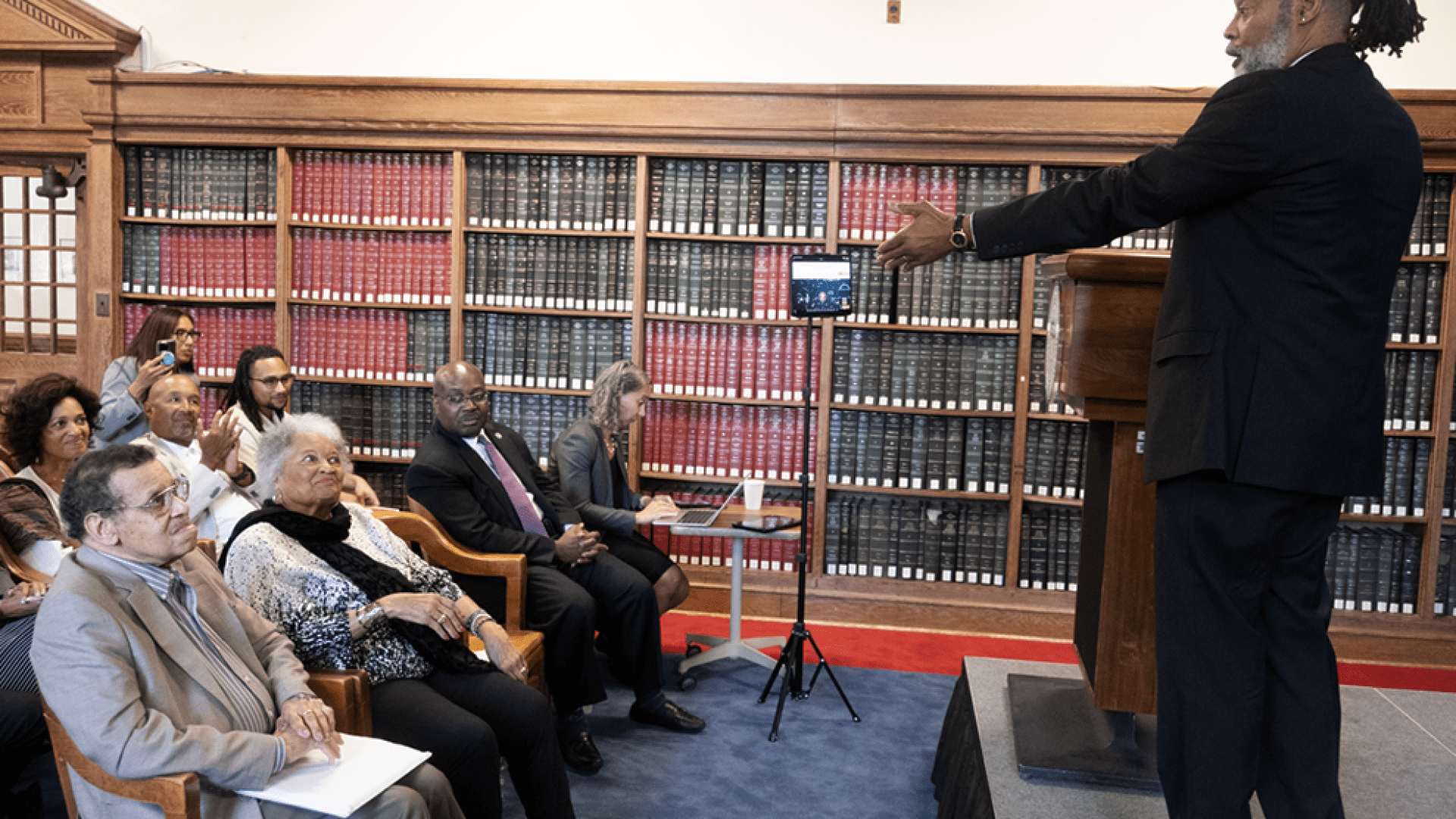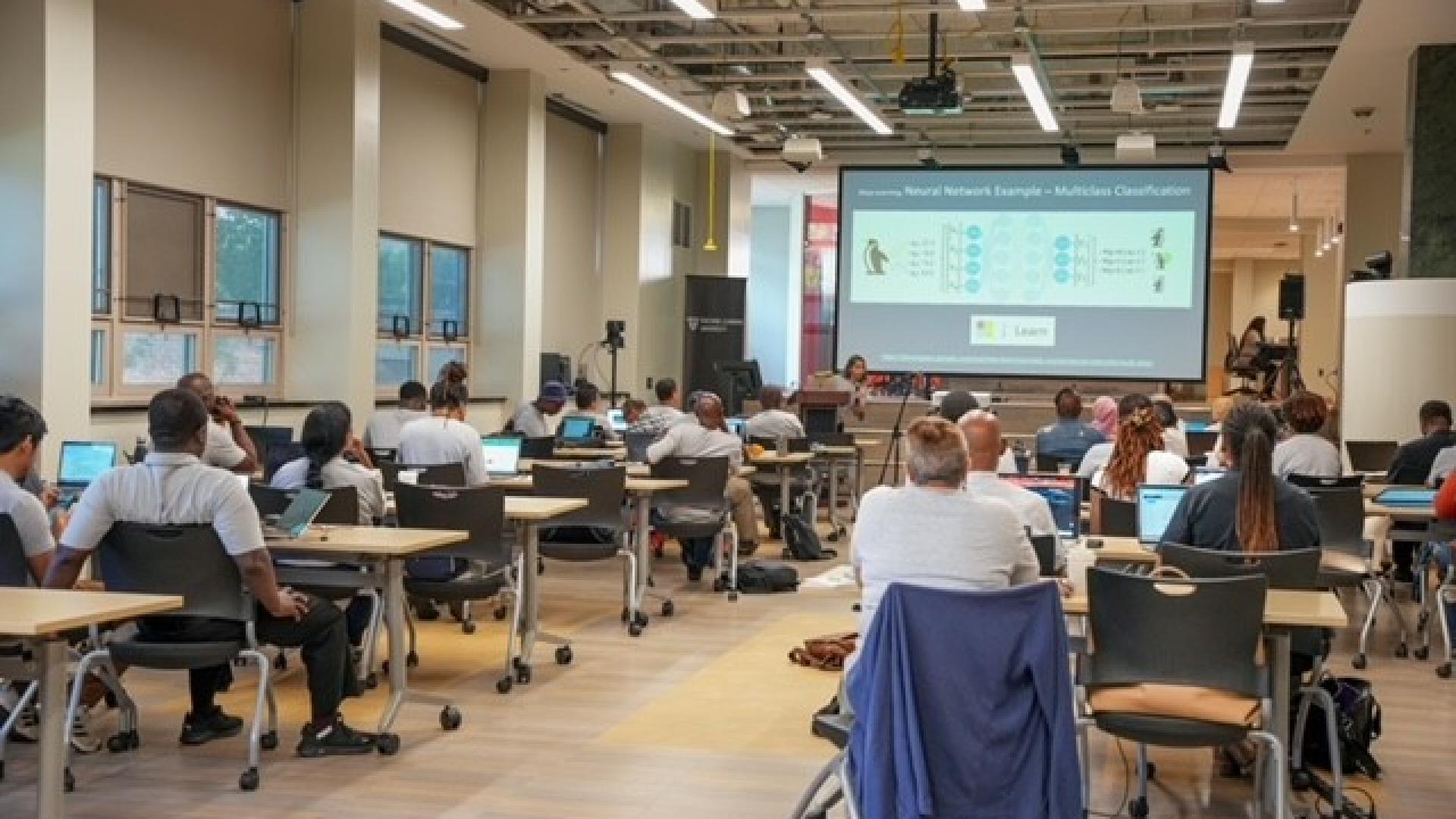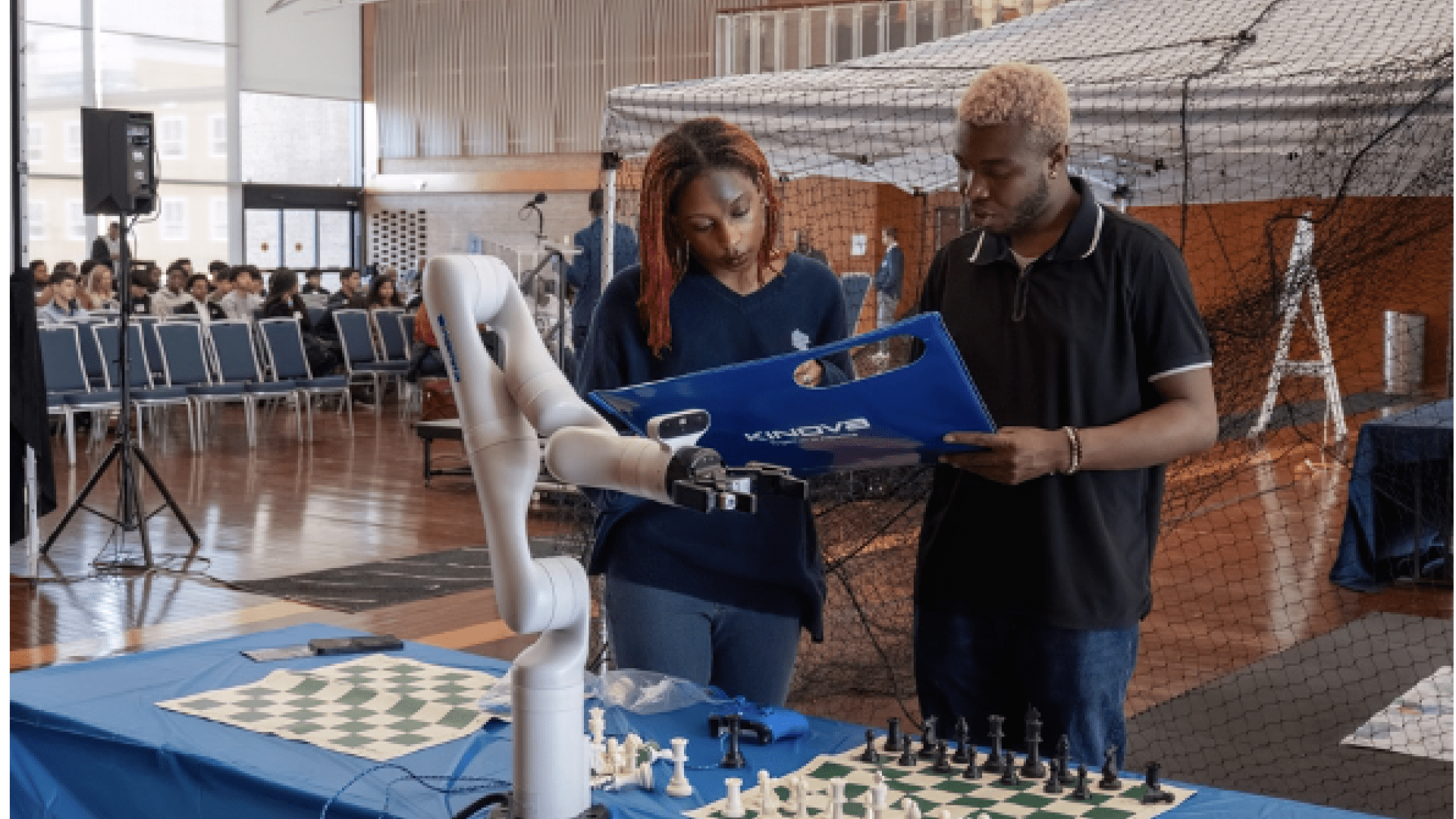Doctor of Philosophy (Ph.D.)
Mathematics
University of Connecticut
2001

Talitha Washington, Ph.D., a distinguished mathematician, serves as the Executive Director of the Center for Applied Data Science & Analytics (CADSA) at Howard University. A transformational leader, Dr. Washington guides CADSA’s direction in harnessing the power of data to address society’s most pressing challenges through groundbreaking research, expanded educational opportunities, and innovative advancements on a global scale. She holds the Sean McCleese Endowed Chair, is a Professor of Mathematics, and is the co-Chair of the President's AI Advisory Council, which guides the university's AI strategy across research, academic, and enterprise initiatives.
Dr. Washington serves as the Past-President of the Association for Women in Mathematics and a former member of the Census Scientific Advisory Committee of the U.S. Census Bureau. Her research interests include applied mathematics, dynamical systems, nonstandard finite difference schemes, data science, artificial intelligence, and education.
An accomplished scholar and advocate for excellence, Dr. Washington has been recognized with numerous honors. She was elected to Phi Beta Kappa and Sigma Xi, as well as mathematics honor societies Kappa Mu Epsilon and Pi Mu Epsilon. Her accolades include the 2019 BEYA STEM Innovator Award, the 2019 Outstanding Faculty Award from Howard University, and the 2020 NSF Director’s Award for Superior Accomplishment. She is a Fellow of the African Scientific Institute (ASI), the American Mathematical Society (AMS), the Association for Women in Mathematics (AWM), and the American Association for the Advancement of Science (AAAS).
Dr. Washington’s professional journey reflects her commitment to advancing knowledge and equity in STEM. She was a VIGRE Research Associate in the Department of Mathematics at Duke University and served as the inaugural Director of the Atlanta University Center (AUC) Data Science Initiative and the NSF National Data Science Alliance. Her academic appointments include assistant professorships at The College of New Rochelle and the University of Evansville, and a full professorship at Clark Atlanta University. As a former Program Director at the National Science Foundation (NSF), she worked in the Convergence Accelerator within the Directorate for Technology, Innovation, and Partnerships (TIP) and in the Division of Undergraduate Education (DUE), where she led the development of NSF's first Hispanic-Serving Institutions Program, coauthoring solicitations that awarded $85 million.
Dr. Washington’s educational foundation is as impressive as her professional achievements. After graduating early from Benjamin Bosse High School in Evansville, Indiana, she studied abroad in Juan Viñas, Costa Rica. She earned her undergraduate degree in mathematics from Spelman College, which included a semester abroad at the Universidad Autónoma de Guadalajara in Mexico. She later completed her master’s and doctoral degrees in mathematics at the University of Connecticut, which recently awarded her an honorary Doctorate of Science.
Dr. Washington shares a unique connection with Dr. Elbert Frank Cox, as both are mathematicians from Evansville, Indiana. Dr. Cox, the first African American to earn a Ph.D. in mathematics, was a faculty member at Howard University. Dr. Washington looks forward to honoring Dr. Cox’s legacy through her dedication to excellence, truth, and service.
Mathematics
University of Connecticut
2001
Mathematics
University of Connecticut
1998
Mathematics
Spelman College
1996
The Dig | Howard University Researcher Investigate the Future of AI Jobs with NSF-Funded Project
The Atlanta Voice | Talitha Washington Named First Person Ever to be Named Both AMS and AWM Fellow in the Same Year
The Washington Informer | HBCUs Propel the Next Generation of Black Leaders in AI, Digital Literacy
UConn Today | UConn Magazine: Revenge of the Data Scientists: Talitha Washington is Turning the Tables
This article details how a multi-institutional collaboration among Historically Black Colleges and Universities (HBCUs) established a coordinated framework to launch rigorous data science academic programs. Through a cohort-based faculty model, the project successfully developed the curricula and high-impact strategies across HBCUs to scale the national data science workforce.
These Curriculum Guidelines provide a foundational framework for institutions to develop rigorous, adaptable data science curricula that bridge the gap between academic training and industry demands.
This paper details the framework by the Artificial Intelligence/Machine Learning Consortium to Advance Health Equity and Researcher Diversity (AIM-AHEAD) Ethics and Equity Workgroup (EEWG) for integrating ethics and fairness into biomedical AI, focusing on mitigating algorithmic bias and cultivating the research workforce.
This paper develops dynamically consistent nonstandard finite difference (NSFD) schemes that accurately simulate nonlinear bridge oscillations, successfully overcoming the computational instabilities of standard numerical methods.
This paper develops a dynamically consistent nonstandard finite difference scheme for the heat equation that preserves physical properties while mathematically bridging microscopic particle movement and macroscopic thermal conduction.
This paper applies differential equations to investigate the release of Luteinizing Hormone (LH) in response to varying patterns of Gonadotropin-releasing hormone (GnRH), providing a predictive tool for LH release patterns.






In this AI Summit interview, Dr. Talitha Washington discusses the strategic integration of AI into the workforce. She emphasizes the roles of data security, prompt engineering, and cross-sector partnerships in driving innovation. Ultimately, she highlights how ethical AI application enhances human performance and solves complex societal challenges.
Dr. Talitha Washington shares how her work with Historically Black Colleges and Universities (HBCUs) is creating robust pathways for students to enter the AI-driven workforce through new majors, minors, and national research alliances. She said, "We need all hands on deck...to really move the needle and ensure that every student has access to data science and AI because it makes it better for everyone."
In this LifeBeat Podcast interview, Dr. Talitha Washington explores how AI and data science can be harnessed to improve community health and drive social impact through ethical stewardship. She emphasizes that technology should augment human performance rather than replace it, requiring a foundation of curiosity and critical thinking to ensure responsible innovation.